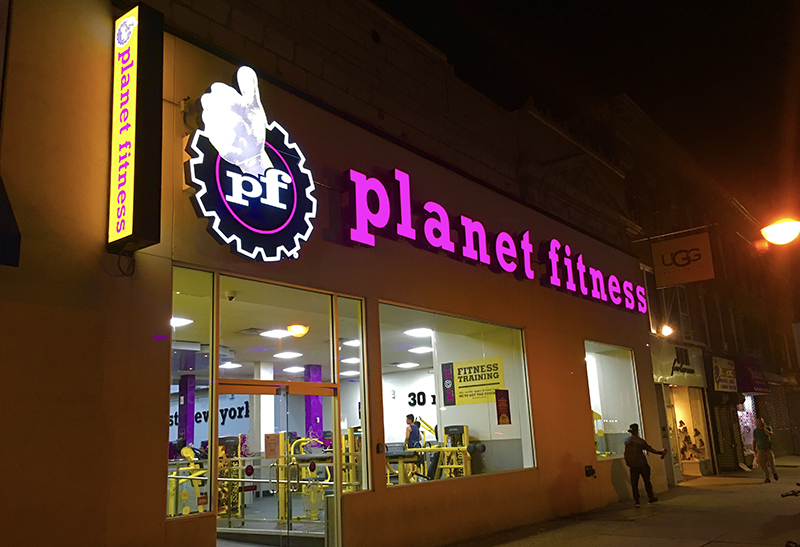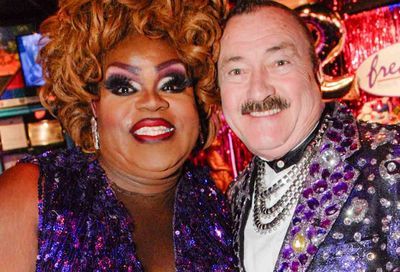Virginia LGBT advocates call on General Assembly to nix bathroom bill
LGBT leaders and allies react to the controversial provisions in Bob Marshall's anti-transgender legislation

LGBT advocates and allies are calling on legislative leaders within the General Assembly from both political parties to reject a bill that seeks to restrict transgender people’s access to restrooms and changing facilities.
If passed, HB1612, sponsored by Del. Bob Marshall (R-Manassas, Manassas Park, Bull Run), would require staff at government buildings to enforce a prohibition on the use of any gender-specific, multi-user restroom or changing facility by a person who was born the opposite sex. If a person who was born the opposite biological sex at birth uses the facility, the bill allows other users of the facility to sue the government entity that owns the building and be awarded damages for “physical and emotional pain and suffering,” as well as attorney costs incurred by the plaintiff bringing the suit.
Marshall’s bill has been compared to North Carolina’s HB 2 law, part of which sought to restrict people to using only the bathroom of the gender listed on their birth certificate. However, the Virginia bill goes even further: whereas, in North Carolina, transgender people (though only those who had undergone gender confirmation surgery) could present an amended birth certificate reflecting their correct gender to prove they were legally able to use sex-specific facilities, Marshall’s bill doesn’t even allow that. Instead, people must use the facility that comports with their assigned sex at birth as listed on their “original birth certificate.”
“We strongly oppose Del. Marshall’s HB 1612,” James Parrish, the executive director of Equality Virginia, said on a Wednesday afternoon conference call with reporters. “We feel this is a bill that will not only immediately cause harm to members of our community, but, as we’ve seen in North Carolina, has the potential to cause severe harm to our economy as well.”
Noting that HB 2 is estimated to have cost North Carolina $600 million in lost revenue after the bill’s passage prompted economic boycotts, scuttled plans for expansion by major corporations, and the cancellation of concerts and sporting events, Parrish said that Virginia — which is facing a $1 billion budget shortfall — cannot afford to tempt fate.
“We would like to see leadership on both sides step up on Day 1 [of the legislative session] and say that this bill is dead on arrival,” Parrish said. “We don’t feel there’s any need to spend time during this short session dealing with a bill that does nothing productive, and has many potential and likely harms.”
Cathryn Oakley, senior legislative counsel of state and municipal advocacy for the Human Rights Campaign, said during the conference call that Marshall’s bill contains some of the most damaging — and controversial — provisions that are in HB 2.
Oakley also noted that Marshall’s bill contains a provision requiring school administrators to report to a student’s parent or legal guardian within 24 hours if the student asks to be treated according to a gender identity that is different from their biological sex at birth. Whereas a similar bill in Texas says that parents cannot be denied information about their child — including their sexual orientation or gender identity or expression — if they ask for it, Virginia’s law goes a step further and places the burden on school administrators to proactively report gender-nonconforming students to their parents.
“I am not aware of another regulation like that in the country,” Oakley said. “That is really an outlier.”
LGBT advocates have objected to the parental notification portion of the bill, saying it will require teachers to “out” students to their parents, and put those children at risk of being abused, kicked out of their homes, subjected to conversion therapy, and, in some cases, may even lead them to contemplate suicide. Parrish notes that LGBT youth are disproportionately overrepresented among homeless youth, with many of them having been kicked out after their parents found out about their sexual orientation or gender identity.
Last year, a similar bill that would have imposed a “one-size-fits-all” regulation requiring government buildings and public schools to limit transgender individuals students to using the bathroom of their biological sex at birth was defeated in a House subcommittee. But even if the Republican-dominated General Assembly were to pass Marshall’s bill, Gov. Terry McAuliffe has vowed to veto it. That veto would subsequently be upheld by Democrats in the General Assembly, as Republicans comprise fewer than two-thirds of both legislative chambers (1 vote short in the House, and 6 votes short in the Senate).
But most LGBT advocates and allies question why such legislation is even being introduced at this time.
Danica Roem, a transgender candidate running for the Democratic nomination to take on Marshall in the general election, says the delegate’s decision to introduce a controversial bill has become a yearly occurrence.
“It’s so typical of Del. Marshall to, once again, introduce a bill that will go absolutely nowhere in the General Assembly, and isn’t one of the priorities of the people of the 13th District, which are transportation, economic development, and education,” Roem says. “Once again, Del. Marshall has introduced a futile bill that will die and probably won’t even make it to the governor’s desk, all at the cost of us having to pay his salary to not pass legislation. Last year, he introduced 41 bills, and one passed. He’s taken his eye off the ball on the top issues related to the district to pursue divisive social legislation that cost North Carolina hundreds of millions of dollars, thousands of jobs, and cost the Republican governor who supported HB 2 his job.”
Mansimran Kahlon, the other Democrat seeking Marshall’s House seat, has also criticized the delegate for introducing the bill, the name of which — The Physical Privacy Act — is deliberately misleading.
“It has nothing to do with privacy, it has absolutely everything to do with discrimination, and actually violates the privacy of individuals who identify as LGBTQ,” says Kahlon. “These types of bills aren’t good for anybody, not just LGBTQ people.”
Support Metro Weekly’s Journalism
These are challenging times for news organizations. And yet it’s crucial we stay active and provide vital resources and information to both our local readers and the world. So won’t you please take a moment and consider supporting Metro Weekly with a membership? For as little as $5 a month, you can help ensure Metro Weekly magazine and MetroWeekly.com remain free, viable resources as we provide the best, most diverse, culturally-resonant LGBTQ coverage in both the D.C. region and around the world. Memberships come with exclusive perks and discounts, your own personal digital delivery of each week’s magazine (and an archive), access to our Member's Lounge when it launches this fall, and exclusive members-only items like Metro Weekly Membership Mugs and Tote Bags! Check out all our membership levels here and please join us today!

























